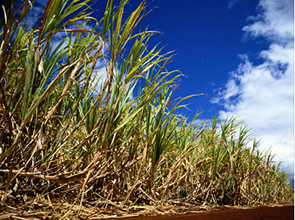Robert Vierhout, Secretary-general of the recently created European Producers’ Union of Renewable Ethanol (ePURE), has struck out at NGO’s questioning whether they have taken advantage of the politicisation of biofuels , to “engage and affect the process of market information”.
The voice of the European bioethanol industry in Brussels was unified on the 3 November with the official launch in Geneva of ePURE, the European Producers’ Union of Renewable Ethanol, and has taken no time to start airing its concerns.
Re-charged after the Christmas break, its Secretary-general, Robert Vierhout, published an article in Ethanol Producer Magazine on 27 December in which he highlights how a number of NGOs have repeatedly called for stopping governmental support of biofuels, and questions their reasons for doing so.
“Very vocal during the food versus fuel debate two years ago, they picked up the indirect land use change (ILUC) topic immediately as their new banner to wave. The innocent spectator seeing how committed these groups appear to be in fighting biofuel policies could come to the conclusion that they are sincere in their beliefs and goals,” says Vierhout. However, he refers to recent academic work that provides an interesting insight into what actually motivates NGOs in the biofuel debate.
In the summer, Sarah Pilgrim and Mark Harvey, two researchers of the University of Essex in England, published the results of their research titled “Battles over Biofuels in Europe: NGOs and the Politics of Markets”. Their most significant conclusion is that the development of NGO policy on biofuels has been driven more by narrow political opportunities for influence than by broader and more coherent policy responses to global climate change or economic development, or indeed rigorous assessment of the scientific evidence.
“The mere fact that governments adopted detailed and tailored policies and programs on biofuels including mandates, targets and sustainability criteria show the biofuel market has been politicized,” says Vierhout. “Because the market became so political, NGOs saw an easy opportunity to engage and affect the process of market information. Itis clear that some NGOs are attempting to scaremonger the public and policymakers on biofuels. They produce reports that contain baseless assumptions and allegations, which frankly represent nothing more than shock tactics against biofuels,” he claims.
European biofuels under attack
Vierhout believes Europe became the most vulnerable region given the importance that is given to greenhouse gas emission savings and the scientific controversies over the level of saving that can be achieved by biofuels. “NGOs used this controversy to improve their profile and visibility,” Vierhout adds. “The mere fact that one is dealing with an NGO doesn’t mean its view needs to be taken on-board without hesitation…The work of Pilgrim and Harvey has clearly demonstrated that NGOs and their claims against biofuels deserve caution.”
Vierhout believes Pilgrim and Harvey’s paper is “a must for all regulators and politicians”, as it would increase their savviness on how to deal with the claims made by NGOs on biofuel policy. He also refers to a recent study on the public’s view on biofuels which found that a large majority of Europeans (72 percent) believe biofuels should be encouraged.
ePURE is a merger of two former European bioethanol associations: UEPA and eBIO. Like eBIO, ePURE is an industry association governed by bioethanol producers. But whereas eBIO only addressed bioethanol for fuel, the scope of ePURE’s work, like that of UEPA, covers all uses of bioethanol, including beverages and industrial applications as well as fuel.
Abengoa Bioenergy (Spain) was recently appointed to serve in the first Executive Committee of ePURE, along with the following companies: Tereos (France, president); CropEnergies (Germany, vice-president), Cristal Union (France), Ensus (UK), Royal Nedalco (The Netherlands) Lantmannen Agroetanol (Sweden), Alco Biofuel (Belgium), Enviral (Czech Republic) and Inbicon (Denmark).


